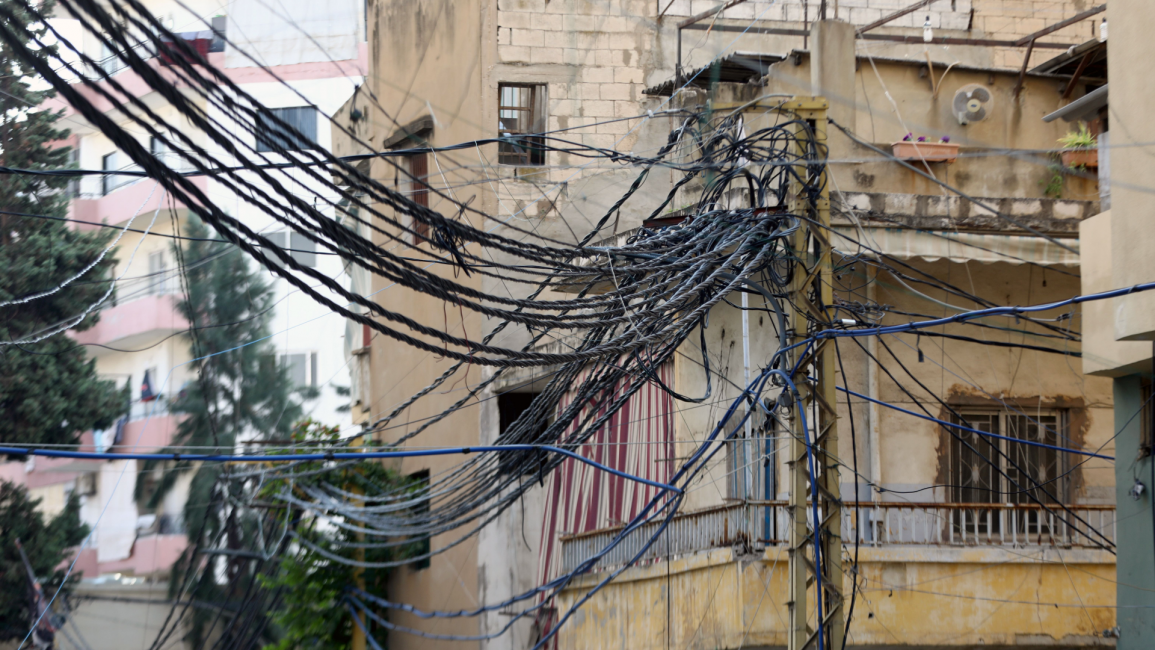Crises-hit Lebanon heads for blackout as electricity funds dry up
Power cuts have been common in Lebanon ever since the end of the 1975-1990 civil war, forcing Lebanese to pay a second power bill to private generators for three to 12 hours each day during the outages.
Now the country is facing its worst economic crisis in decades, and fast running out of hard currency to back imports.
Caretaker energy minister Raymond Ghajar warned the state electricity company, Electricite du Liban, was strapped for cash.
"Lebanon could head towards total darkness at the end of the month if Electricite du Liban is not provided with financial aid to buy fuel," he said, the official National News Agency reported.
Ghajar, who was speaking after meeting Lebanese President Michel Aoun, warned of repercussions on all sectors if the power went out.
"Imagine your life without electricity, internet, phones, hospitals or vaccines... It's surreal to live in the 21st century without electricity," he said.
Ghajar has called for emergency funding for the state power company to continue providing power, until a larger loan is approved by parliament.
Until now the electricity company had been functioning on the remains of a loan allocated under the 2020 budget, but the 2021 budget has not yet been passed as the country struggles with twin economic and political crises.
Twitter Post
|
Lebanon has been importing fuel on a shipment by shipment basis since the start of the year, after a contract with a subsidiary of Algerian state company Sonatrach ran out and was not renewed.
Users on social media lashed out at Ghajar's comments.
"What is surreal is that we have these officials in charge," one wrote, echoing widespread sentiment that the country's political elite is incompetent or corrupt and responsible for the country's many crises.
The international community has long demanded a complete overhaul of the electricity sector, which has cost the government more than $40 billion since the end of the war.
Political deadlock
Lebanon's government resigned after a massive blast in Beirut last summer that killed more than 200 people, but a deeply divided political class has failed to agree on a cabinet to replace it.
On Thursday, local media reported a Hezbollah delegation is due to visit Moscow next week, at the invitation of the Russian government, in a bid to form a new Lebanon government.
Monday's visit will be lead by Mohammed Raad, the head of Hezbollah's political wing, Al-Wafa, while the movement's international relations official, Ammar Al-Mousawi, will also attend.
The visit comes days after Lebanon's Prime Minister-designate, Saad Hariri, met with Russia's Foreign Minister Sergey Lavrov.
Analysts say Russian-Lebanese meetings indicate Moscow's will for the establishment of a new Beirut government, which has been stalled for months and contributed to the country's economic hardships.
Hariri warned on Saturday that Lebanon was quickly headed toward chaos and appealed to politicians to put aside their differences to allow for the formation of a new government and allow international assistance.
Hariri was named to form a new government in October but five months later disagreements between him and President Michel Aoun on the shape of the cabinet has stood in the way.
Lebanon has also been in desperate need of foreign currency, but international donors have said they will only help the country if major reforms are implemented.
Agencies contributed to this report.
Follow us on Facebook, Twitter and Instagram to stay connected


![Minnesota Tim Walz is working to court Muslim voters. [Getty]](/sites/default/files/styles/image_684x385/public/2169747529.jpeg?h=a5f2f23a&itok=b63Wif2V)





![Israeli strikes on Beirut [Getty]](/sites/default/files/styles/image_330x185/public/2176155077.jpeg?h=a5f2f23a&itok=Xq7ypWgM)
